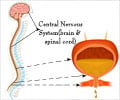Tizanidine Medication Information
Discover comprehensive details about Tizanidine, including its pronunciation, uses, dosage instructions, indications, and guidelines on how and when to take it or avoid it.
The updated prescription information covers potential side effects, precautions, warnings, and storage recommendations.
Additionally, explore the Tizanidine brands available in India and internationally, along with pricing information. For personalized advice, consult your healthcare provider.
Generic Name : Tizanidine Pronunciation : tye-ZAN-i-deen ICD Code : Y55.1 Therapeutic Classification : Skeletal Muscle RelaxantsBrand Names or Trade Names of Tizanidine
International :
Why is Tizanidine Prescribed? (Indications)
This medication is a centrally acting muscle relaxant. It is used to treat the spasticity especially due to neurological disorders, and in painful muscle spasms of spinal origin. It blocks nerves that stimulate muscles to contract.When should Tizanidine not be taken? (Contraindications)
Hypersensitivity.What is the dosage of Tizanidine?
Adult: Spasticity-PO- The initial recommended dose is 2 mg once daily for, increase slowly if needed, up to 24 mg/day in 3-4 divided doses. Max: 24 mg/day; 8 mg/dose.Painful muscle spasm associated with musculoskeletal conditions: 2-4 mg 3 times/day.
How should Tizanidine be taken?
It comes as a tablet as well as capsule, to take by mouth with or without food, twice or thrice a day.What are the warnings and precautions for Tizanidine?
•Caution should be exercised in patients with history of prolonged QT interval, liver or kidney disease, children, elderly, pregnancy and breastfeeding.• Monitor LFT(Liver Function test) regularly.
Stop treatment if liver enzymes are raised persistently greater than 3 times upper limit of normal range.
Avoid abrupt withdrawal of therapy.
It may make you drowsy. Do not drive a car or operate machinery while taking this medication.
What are the side effects of Tizanidine?
Most Common- Dry mouth, increased spasm or tone of muscles, and dizziness.Heart- Dilatation of blood vessels, postural hypotension, abnormal heart rhythm.
Gastrointestinal- Abdomen pain, diarrhea, blood in stool, difficulty in swallowing, nausea, loss of appetite.
Liver- Increase in liver enzymes, liver damage.
Blood- Unusual bleeding, high blood cholesterol, anemia, decrease in white blood cells, systemic inflammatory response syndrome.
Metabolic - Swelling of leg, hypothyroidism, weight loss.
Musculoskeletal- Autoimmune neuromuscular disease, back pain.
Central Nervous System- Sedation, depression, anxiety, tingling, hallucinations.
Respiratory - Sinusitis, pneumonia, inflammation of bronchus.
Skin - Rash, sweating, skin ulcer, itching, dry skin, acne, hair loss, hives.
Eye and ENT- Ear pain, tinnitus, deafness, glaucoma, conjunctivitis, eye pain, optic nerve disease, inflammation of middle ear, eye bleeding, visual field defect.
Genitourinary- Urinary urgency, heavy menstrual bleeding, urinary tract infection, urinary retention, kidney stone, increase in size of uterine fibroids, vaginal yeast infections, inflammation of vagina.
What are the other precautions for Tizanidine?
It may cause dizziness, lightheadedness, and fainting when you get up too quickly from a lying position. Get up slowly from bed.








